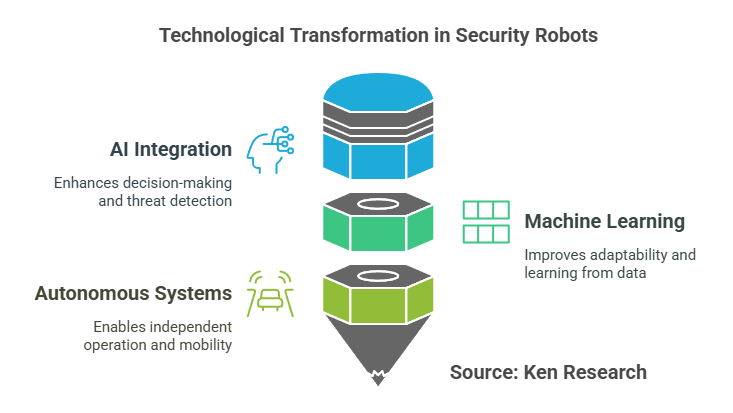How Agentic AI Is Transforming Healthcare Operations Beyond Traditional Automation

Strong 8k brings an ultra-HD IPTV experience to your living room and your pocket.
The healthcare industry is undergoing a remarkable transformation. While traditional automation has helped streamline repetitive tasks, a new wave of innovation—Agentic AI—is pushing boundaries further. Agentic AI doesn’t just automate; it acts, learns, and adapts, making healthcare operations smarter, more responsive, and truly patient-centric.
What Is Agentic AI?
Agentic AI refers to intelligent systems capable of autonomous, goal-oriented action. Unlike traditional automation, which follows set rules, Agentic AI understands objectives, reasons through options, and takes initiative—often collaborating with humans to deliver better outcomes. Think of it as having a digital teammate, not just a tool.
Beyond Traditional Automation: Key Differences
Traditional automation, such as Robotic Process Automation (RPA), excels at handling repetitive, rule-based tasks like data entry or generating standard reports. However, it struggles with:
- Adapting to exceptions or new scenarios
- Understanding context
- Making complex decisions
Agentic AI, on the other hand, is:
- Goal-Oriented: Works toward higher-level objectives (e.g., reducing patient wait times)
- Autonomous: Initiates and completes tasks independently
- Context-Aware: Understands and adapts to changing healthcare environments
- Learning & Adaptive: Continuously improves by learning from interactions and outcomes
- Proactive: Anticipates issues and takes action before problems arise
Transforming Healthcare Operations: Real-World Impact
1. Streamlining Administrative Workflows
Administrative burdens in healthcare are notorious for draining time and resources. Agentic AI is revolutionizing this by:
- Automating appointment scheduling and patient intake
- Transcribing doctor-patient conversations into clinical notes
- Managing billing, coding, and claims processing with minimal errors
- Retrieving and updating patient records in real time
By handling these tasks, Agentic AI frees clinicians to focus on what matters most—patient care.
2. Enhancing Clinical Decision Support
Agentic AI systems analyze vast amounts of structured and unstructured data, including:
- Electronic health records (EHRs)
- Medical imaging
- Lab results
- Physician notes
With this information, AI agents provide evidence-based recommendations, suggest diagnostic tests, and even alert clinicians to potential complications. This leads to more accurate, timely, and personalized care decisions.
3. Personalized Patient Care
Agentic AI takes personalization to the next level by:
- Continuously analyzing patient-specific data (genomics, lifestyle, medical history)
- Recommending targeted therapies and treatment plans
- Monitoring patient progress and adjusting care in real time
This approach has been shown to improve treatment outcomes, increase patient satisfaction, and reduce hospital readmissions.
4. Improving Care Coordination
Healthcare often involves multiple departments and care teams. Agentic AI:
- Integrates data from EHRs, scheduling systems, and care management platforms
- Identifies high-risk patients needing immediate attention
- Facilitates seamless collaboration among providers
This reduces preventable readmissions and ensures patients receive timely, coordinated care.
5. Accelerating Drug Discovery and Research
Bringing new drugs to market is costly and time-consuming. Agentic AI accelerates this process by:
- Simulating how compounds interact with virtual patient models
- Predicting drug interactions and potential side effects
- Helping researchers prepare for clinical trials faster
This not only speeds up innovation but also reduces costs for both providers and patients.
Eager to discover more? Follow the blog for a deeper dive into the statistics and real-world insights on how agentic AI is transforming healthcare operations.
Agentic AI in Action: Practical Examples
- Post-Surgery Care: After a surgery, Agentic AI can generate personalized recovery instructions, monitor whether patients access their care plans, and send reminders for follow-up appointments. If a patient reports concerning symptoms, the system can alert a nurse or schedule a virtual consult—without human intervention.
- Claims Processing: AI agents review documentation, detect discrepancies, and flag issues for human review, drastically reducing approval times and administrative workloads.
- Chronic Disease Management: For conditions like congestive heart failure, Agentic AI coordinates follow-up calls, home nurse visits, and dynamically updates care plans based on patient progress.
The Future: A Human-Centric, Efficient Healthcare System
Agentic AI is not about replacing healthcare professionals—it’s about empowering them. By automating complex, multi-step workflows and making intelligent decisions, Agentic AI reduces burnout, improves accuracy, and enhances patient engagement. As these systems continue to evolve, they promise a future where healthcare is not just automated, but truly intelligent and human-centered.
Key Takeaways:
Agentic AI goes beyond traditional automation by acting autonomously, learning, and adapting to complex healthcare environments.
It streamlines operations, enhances clinical decision-making, personalizes care, and improves coordination across the healthcare ecosystem.
The result is a more efficient, responsive, and patient-focused healthcare system—one where technology and humans work hand-in-hand for better outcomes.
Note: IndiBlogHub features both user-submitted and editorial content. We do not verify third-party contributions. Read our Disclaimer and Privacy Policyfor details.







